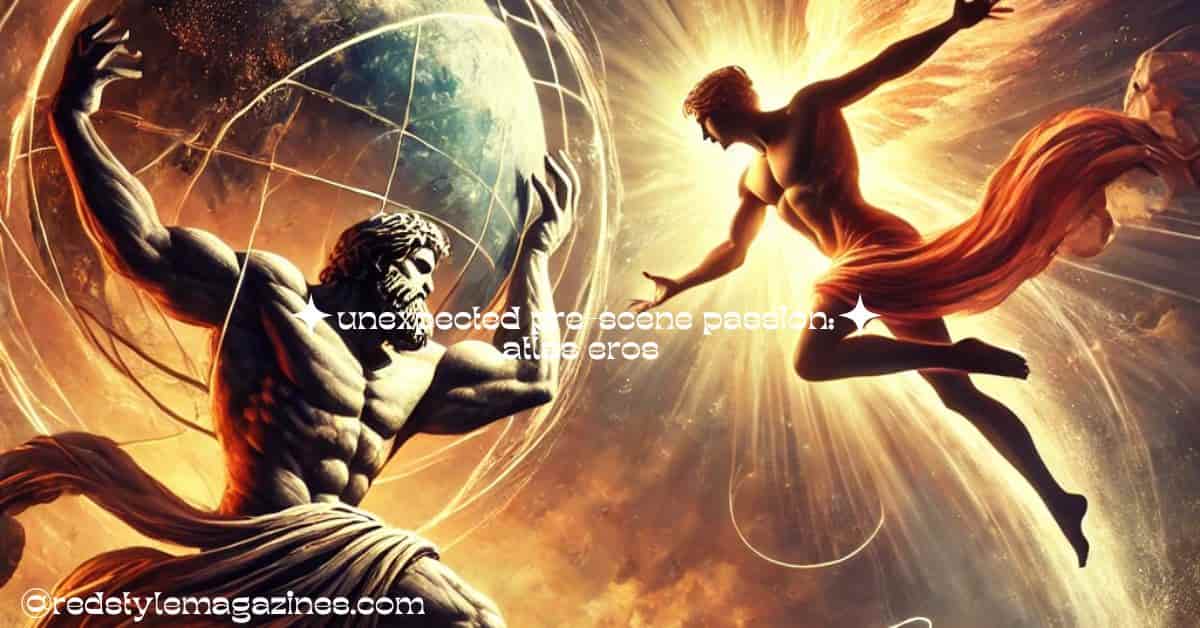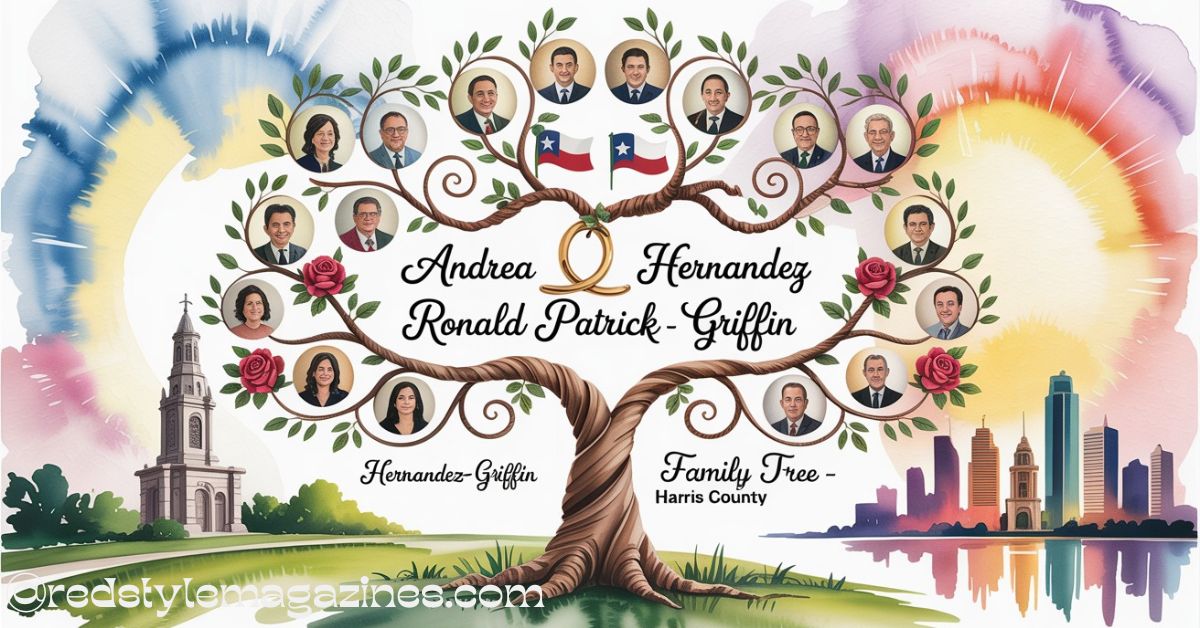Unexpected Pre-Scene Passion: Atlas Eros is about Atlas, who carries heavy duties, and Eros, the god of love. It shows how love and passion can change even the most serious responsibilities. The story connects duty and desire in a surprising way.
Stay with us as we talk more about Unexpected Pre-Scene Passion: Atlas Eros. We’ll explore how this story mixes duty and love in surprising ways. Don’t miss it!
What is “Unexpected Pre-Scene Passion: Atlas Eros”?
“Unexpected Pre-Scene Passion: Atlas Eros” is a story that combines two characters from Greek mythology: Atlas, the Titan who carries the weight of the heavens, and Eros, the god of love and desire. The story explores what happens when these two very different forces—duty and passion—come together.

Atlas represents responsibility, endurance, and the burden of life’s challenges, while Eros brings unpredictability, love, and freedom. The tale shows how love and desire can unexpectedly challenge or change our sense of duty and balance, making us question how we can juggle both our responsibilities and our personal passions.
Why are Atlas and Eros paired together in this story?
Atlas and Eros are paired together in this story because they represent two different but important aspects of love. Atlas symbolizes strength and responsibility, as he carries the heavy weight of the world on his shoulders.
This shows how love can sometimes feel like a burden that requires endurance. On the other hand, Eros represents passion and desire, bringing excitement and spontaneity to relationships.
Together, they highlight the balance between the challenges of love and the joy it can bring. Their pairing reminds us that love often requires both strength and the ability to embrace intense emotions, making it a complex but beautiful experience.
Read Also: Sassy Little Brat NYT – 10+ Best Tips and Answers Revealed!
What is the main theme of “Unexpected Pre-Scene Passion: Atlas Eros”?
The main theme of “Unexpected Pre-Scene Passion: Atlas Eros” revolves around the unpredictability of love and desire. It explores how strong emotions can arise suddenly, often in unexpected moments before significant events. The story contrasts the responsibilities represented by Atlas, who carries a heavy burden, with the playful and passionate nature of Eros, the god of love.

This combination highlights the struggle between duty and personal desires, showing how these conflicting feelings can lead to intense connections and personal growth. Ultimately, it emphasizes that love can emerge in surprising ways, impacting our lives in profound manners.
Comparison between Atlas and Eros reveal – Compare Paths, Discover Passion!
Here’s a simple table comparing Atlas and Eros, highlighting their key characteristics and what they represent:
| Aspect | Atlas | Eros |
| Type of Strength | Strength through duty and responsibility | Strength through passion and desire |
| Focus | Carrying burdens and fulfilling obligations | Pursuing love and emotional connections |
| Isolation vs. Connection | Often isolated due to heavy responsibilities | Promotes connection and relationships |
| Stability vs. Spontaneity | Represents stability and constancy | Represents spontaneity and excitement |
| Emotional Complexity | Love can feel like a burden | Love can bring joy and fulfillment |
| Life Balance | Highlights the importance of duty | Emphasizes the need for desire |
Read Also: Secaucus Junction Pick-Up – Your Easy Pick-Up Solution!
What role does Eros play in the story?
Eros plays a pivotal role in the story, symbolizing the complexities of love and the challenges it brings. His actions and relationships drive the narrative, offering valuable lessons about trust, growth, and the transformative power of love.
Role of Eros in the Story
- Symbol of Love: Eros represents passion, desire, and romantic love, acting as a divine force that connects hearts. His influence highlights the universal nature of love across all realms.
- Magical Powers: With his bow and arrows, Eros makes people fall in love, symbolizing the unpredictability of emotions. His powers serve as a reminder of love’s mysterious and uncontrollable nature.
- Love for Psyche: Eros falls deeply in love with Psyche, a mortal woman, showcasing that love transcends boundaries. Their relationship highlights the possibility of harmony between mortal and divine worlds.
- Conflict with Aphrodite: Aphrodite commands Eros to make Psyche fall for someone ugly, creating tension in the story. This conflict reveals the struggles between duty and personal desires.
- Challenges in Love: Eros and Psyche face numerous obstacles, including trust issues when Psyche doubts his identity. Their trials demonstrate how love must be nurtured with faith and patience.
- Growth and Transformation: Through their journey, Eros helps Psyche grow emotionally and spiritually. This highlights that true love fosters resilience and personal transformation.
- Importance of Trust: The story emphasizes that trust is vital in overcoming challenges within a relationship. Eros and Psyche’s reconciliation underlines the healing power of belief in one another.
- Power of Love: Despite complications, Eros shows that love is a transformative force capable of overcoming even the greatest odds. Their union becomes a testament to love’s enduring strength.
How does this story resonate with modern life?
This story connects with modern life because many people today feel like Atlas, carrying heavy responsibilities like work, family, or other commitments. Just like Atlas, we often feel like we’re constantly juggling things and can’t always follow our desires.

We’re busy with tasks and feel overwhelmed by all the things we “have to” do. The story also talks about how love or passion can come unexpectedly, just like in today’s busy world, when we might be focused on our duties but something surprising or exciting comes our way.
It reminds us that we need to balance our responsibilities with moments of joy and passion. Sometimes, we get caught up in our routines and forget to take time for the things that make us feel alive. The story shows that, just like Eros’s sudden love, these unexpected moments can change our perspective on life, helping us realize that we need both our duties and our passions to live a fulfilled life.
What are the key lessons of the story? – Unexpected Pre-Scene Passion: Atlas Eros!
The key themes of “Eros and Psyche” revolve around important ideas about love and relationships. Here are the main themes explained in simple words:
Love and Trust:
The story emphasizes that trust is a crucial foundation for any loving relationship. When Psyche, driven by curiosity, looks at Eros while he sleeps, she breaks his trust, leading to significant consequences.
This act shows how easily trust can be damaged and how important it is to maintain faith in one another. The theme reminds us that love flourishes when both partners are honest and open, and it highlights the need for communication to build a strong bond.
Jealousy and Betrayal:
Jealousy is a powerful force in the story, especially from Aphrodite, who feels threatened by Psyche’s beauty. Her jealousy leads her to create challenges for Psyche, demonstrating how negative emotions can lead to betrayal and conflict.
This theme illustrates that jealousy can poison relationships and cause harm not only to the person who feels it but also to those around them. It serves as a warning about the destructive nature of envy and the importance of self-acceptance.
Transformation and Growth:
Psyche’s journey is one of transformation, as she faces numerous trials that test her strength and character. Each challenge helps her grow, teaching her valuable lessons about love, sacrifice, and resilience.
By the end of the story, Psyche evolves from a curious mortal into a confident figure who earns her place among the gods. This theme highlights that love often involves personal growth and change, showing that overcoming obstacles can lead to greater self-awareness and fulfillment.
Overcoming Obstacles:
The theme of overcoming obstacles is central to Psyche’s story. Despite facing many hardships, including tasks set by Aphrodite that seem impossible, Psyche’s determination and love for Eros help her persevere.
This theme illustrates that true love is worth fighting for and that challenges can strengthen relationships rather than weaken them. It encourages readers to believe in themselves and their ability to overcome difficulties in pursuit of love.
The Power of Love:
Ultimately, the story celebrates the transformative power of love. Eros’s love for Psyche motivates him to help her through her trials, while Psyche’s unwavering love for Eros drives her to face her fears. This theme shows that love can conquer all, leading to happiness and fulfillment even after struggles. It emphasizes that love is not just a feeling but an active force that inspires courage, resilience, and hope in both characters.
How does surprise enhance the narrative? – Unexpected Pre-Scene Passion: Atlas Eros
Surprise enhances the narrative of “Eros and Psyche” in several important ways:
Creates Tension: The element of surprise keeps readers on edge, wondering what will happen next. For example, when Psyche finally sees Eros’s face, it’s a shocking moment that changes everything. This tension makes the story more engaging and exciting.
Reveals Character Depth: Surprising moments help reveal the true feelings and motivations of the characters. When Psyche spills oil on Eros and wakes him up, it shows her curiosity and desperation, but also leads to her heartbreak when he leaves. These surprises add layers to their personalities.
Drives the Plot Forward: Surprises often act as turning points in the story. For instance, Psyche’s decision to look at Eros despite his warnings leads to significant consequences for both characters. This unexpected choice propels the story into new directions and challenges.
Highlights Themes: The surprises in the story emphasize key themes like trust, betrayal, and love. When Psyche betrays Eros by looking at him, it highlights how easily trust can be broken. This adds depth to the story’s message about the importance of faithfulness in relationships.
Engages Emotions: Surprise evokes strong emotions in readers. When Eros flies away after being betrayed, it creates a feeling of sadness and loss. These emotional moments make the story more relatable and impactful.
Encourages Reflection: Surprising events prompt readers to think about their own lives and relationships. They may reflect on times when they faced unexpected challenges or made choices that changed their paths, making the story resonate more deeply.
Read Also: Four Season Travel Trailer – Built for Every Adventure!
What psychological theories apply to the story? – Unexpected Pre-Scene Passion: Atlas Eros!
Several psychological theories can be connected to the story of Eros and Psyche. Here are some key ideas explained in simple words:
Depth Psychology:
This theory, especially from Carl Jung, looks at the deeper parts of our minds. In the story, Psyche’s journey represents the process of growing and understanding ourselves. Her relationship with Eros symbolizes the inner force that helps her grow. This idea shows that love can lead to personal development.
Individuation:
Individuation is a term from Jungian psychology that means becoming your true self. Psyche’s trials reflect the challenges we all face in life as we try to understand who we are. Each task she completes helps her learn more about herself and become a stronger person. This process shows that personal growth often comes from facing difficulties and overcoming them.
Eros as the Animus:
In Unexpected Pre-Scene Passion: Atlas Eros, Jung’s ideas come to life through the dynamic between Psyche and Eros. Here, Eros can be seen as the “animus,” symbolizing the masculine side of Psyche’s psyche.
Their relationship becomes a pivotal part of her journey toward balance and wholeness. By connecting with Eros, Psyche embraces both her feminine and masculine qualities, just as Atlas must reconcile his burdens with the transformative force of Eros, leading both to a more complete sense of self.
Integration of Opposites:
The ending of the story, where Eros and Psyche unite, symbolizes bringing together different parts of ourselves. Psyche becoming immortal shows that she has achieved a higher understanding of life, blending both her human side and divine qualities. This integration illustrates how embracing all aspects of ourselves can lead to fulfillment and harmony in our lives.
Trust and Betrayal:
The themes of trust and betrayal in the story can also be linked to psychological ideas about relationships. Psyche’s decision to look at Eros breaks his trust, leading to conflict. This teaches us about the importance of trust in love and how easily it can be lost. It reminds us that maintaining trust requires effort and communication between partners to prevent misunderstandings.
Emotional Growth:
Psyche’s journey through challenges represents how we all experience ups and downs in life. Her struggles show that facing difficulties can lead to emotional growth and a better understanding of ourselves. This growth often helps us develop resilience, making us stronger in future relationships and life situations.
FAQ’s
1. How does the story of Atlas and Eros differ from traditional Greek myths?
This story uniquely blends the themes of love and responsibility, unlike traditional myths that often keep these concepts separate. It reimagines the characters to explore how passion can disrupt and reshape duty.
2. Why is the pairing of Atlas and Eros significant?
The pairing highlights the contrasting yet complementary forces of stability and spontaneity. Their interaction shows how love and duty can coexist, offering lessons on finding balance in life.
3. Does “Atlas Eros” focus more on love or responsibility?
The story balances both elements, showing how passion can challenge but also enrich one’s sense of duty. It emphasizes that love isn’t just an escape but a force that reshapes obligations.
4.What makes Atlas Eros stand out from other retellings of Greek myths?
Atlas Eros stands out by focusing on the emotional depth of its characters rather than just their heroic feats. It humanizes these gods, exploring their internal struggles with love and duty. This fresh perspective invites readers to see familiar figures in a new, more relatable light.
5. How does this story inspire personal growth?
The challenges faced by Atlas and Eros symbolize the obstacles in relationships and life. Overcoming these hurdles reflects the importance of resilience, adaptability, and understanding in personal development.
Conclusion
“unexpected pre-scene passion: atlas eros” is a captivating tale that intertwines love and responsibility, offering a fresh perspective on Greek mythology. The narrative encourages readers to reflect on the balance between passion and duty in their own lives.
It reminds us that love can be a powerful force of transformation, enriching even the heaviest of burdens. Ultimately, this story celebrates the complexity and beauty of human connections.
Read Also:
- Symbolism of Travel – 5 Ways to Experience Its Power Today!
- Aaron Kendrick De Niro – 5 Inspiring Facts About His Legacy!
- http://www.orientalsound.top/ – Transform Your Sound Now!




